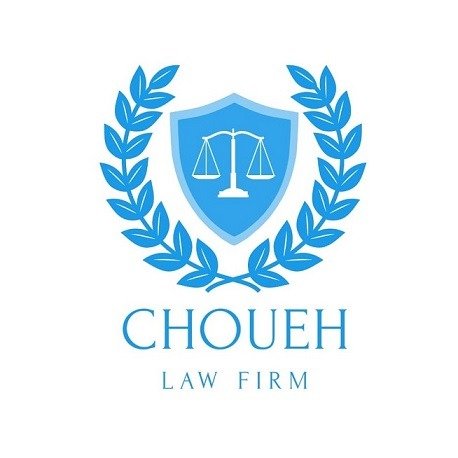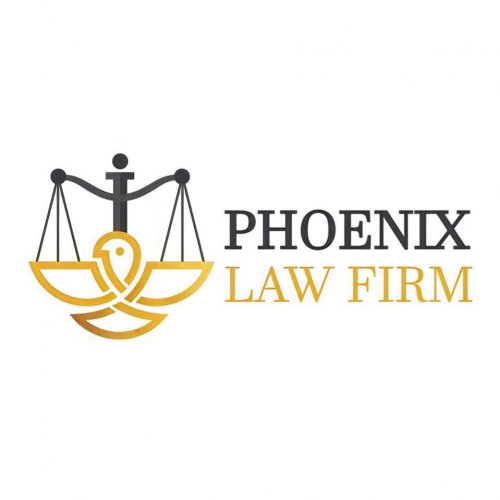Best Restructuring & Insolvency Lawyers in Lebanon
Share your needs with us, get contacted by law firms.
Free. Takes 2 min.
Or refine your search by selecting a city:
List of the best lawyers in Lebanon
About Restructuring & Insolvency Law in Lebanon
Restructuring and insolvency law in Lebanon governs the processes by which individuals or businesses address their inability to pay debts. These legal frameworks are designed to help insolvent debtors reorganize their financial affairs or, if necessary, liquidate assets fairly among creditors. Lebanon's system combines elements of civil law with local statutes and regulations unique to the Lebanese legal system. The aim is to provide a structured approach for dealing with financial distress, maintaining business continuity where possible, and safeguarding the interests of all parties involved.
Why You May Need a Lawyer
Legal assistance is often essential in restructuring and insolvency situations. Here are some common scenarios where having a lawyer is especially important:
- If your business is struggling financially and you are considering restructuring its debts or operations.
- If you have received notices from creditors threatening legal action or demanding payment.
- If you are a creditor worried about recovering debts from an individual or company in financial distress.
- If bankruptcy or judicial liquidation proceedings are initiated against you or your business.
- If you are unsure of your rights or obligations under Lebanese insolvency law.
- If you need to negotiate settlements or payment plans with creditors.
- If you are facing issues involving the enforcement of securities or guarantees.
- If you are involved in cross-border debt situations and need clarification regarding Lebanese law implications.
A lawyer offers crucial guidance to avoid mistakes, protect your assets, and maximize the potential for a positive outcome.
Local Laws Overview
Lebanon's restructuring and insolvency legal landscape is primarily governed by the Lebanese Commercial Code and relevant bankruptcy statutes. Some important features include:
- Bankruptcy and insolvency laws apply to both individuals and legal entities, such as companies and partnerships.
- The legal framework sets out procedures for voluntary restructuring, judicial settlement, and bankruptcy liquidation.
- Companies facing difficulties may seek ad hoc agreement with creditors or file for judicial restructuring before bankruptcy declaration is made mandatory.
- Court-supervised debt restructuring or liquidation is managed by designated trustees and overseen by commercial courts.
- Certain debts and creditors have priority over others in the distribution of assets following liquidation.
- Affected individuals or companies may benefit from a temporary stay of legal proceedings and asset freezes during formal insolvency processes.
- Specific rules apply to management liability, employee protections, and transfer of assets in insolvency situations.
- Recent reforms and draft laws, including the Insolvency Law 2018, seek to modernize procedures in line with international best practices, but the implementation may vary.
Given the complexity of Lebanese law and frequent legal changes, consulting a specialist is highly recommended for navigating restructuring and insolvency cases.
Frequently Asked Questions
What is the difference between restructuring and insolvency?
Restructuring refers to reorganizing a business's debts and operations to improve financial health and avoid insolvency. Insolvency is a state where an individual or business cannot meet its debt obligations as they come due.
Who can file for bankruptcy in Lebanon?
Both individuals and business entities may file for bankruptcy in Lebanon if they become insolvent. Filing requires meeting specific legal criteria and following set procedures in court.
What happens to employees if a company goes bankrupt?
In case of bankruptcy, employees' rights are generally protected, and their unpaid wages are treated as priority claims. However, outcomes will depend on available assets and case circumstances.
How long does the restructuring or insolvency process take?
The timeline varies based on case complexity, the amount of debt involved, the willingness of creditors to negotiate, and court schedules. Simple cases may conclude in a few months, while complicated matters can take years.
What happens to ongoing lawsuits or enforcement actions when insolvency is declared?
Once formal insolvency proceedings begin, most lawsuits and enforcement actions against the debtor's assets are suspended to allow for an orderly process.
Can creditors challenge the actions of a debtor during insolvency?
Yes. Creditors can object to, or seek to reverse, transactions or asset transfers made by the debtor in the period leading up to insolvency if these are deemed prejudicial.
Is it possible to restructure debts without court intervention?
Yes. Parties may attempt out-of-court agreements or settlements with creditors. However, formal, court-approved restructuring offers stronger legal protections and enforceability.
Are personal assets at risk in business insolvency?
If the business is a limited liability company, owners' personal assets are generally protected unless there are instances of fraud, personal guarantees, or legal violations.
What is the role of a trustee in insolvency proceedings?
A court-appointed trustee manages the collection, distribution, and liquidation of the debtor's assets, acts as an intermediary between parties, and ensures compliance with legal procedures.
Can foreign creditors participate in Lebanese insolvency proceedings?
Yes. Foreign creditors have the right to participate and file claims, but they may need legal representation in Lebanon and must comply with local procedures.
Additional Resources
If you are seeking more information or assistance regarding restructuring and insolvency in Lebanon, the following resources can be helpful:
- Commercial Courts in Lebanon - Responsible for overseeing bankruptcy and restructuring procedures.
- Ministry of Justice - Provides information and guidance about legal processes including insolvency.
- Lebanese Bar Association - Offers directories of qualified lawyers who specialize in insolvency and restructuring.
- Local Chambers of Commerce - May assist businesses with resources and references for financial distress situations.
- Banking Control Commission of Lebanon - Oversees issues related to financial institutions facing insolvency risk.
Next Steps
If you are facing financial difficulties or dealing with a restructuring or insolvency matter in Lebanon, consider the following actions:
- Gather all relevant financial documents, contracts, and correspondence related to your situation.
- Consult a lawyer experienced in Lebanese restructuring and insolvency law for a detailed assessment of your options.
- Plan for negotiations with creditors or for preparation of any filings with the courts, as required.
- Stay informed about your rights and responsibilities throughout the process to avoid missteps or exposure to additional liabilities.
- If unsure where to find legal support, contact the Lebanese Bar Association or the Ministry of Justice for referrals.
Early legal intervention often leads to the most favorable outcome, so seeking advice without delay is recommended.
Lawzana helps you find the best lawyers and law firms in Lebanon through a curated and pre-screened list of qualified legal professionals. Our platform offers rankings and detailed profiles of attorneys and law firms, allowing you to compare based on practice areas, including Restructuring & Insolvency, experience, and client feedback.
Each profile includes a description of the firm's areas of practice, client reviews, team members and partners, year of establishment, spoken languages, office locations, contact information, social media presence, and any published articles or resources. Most firms on our platform speak English and are experienced in both local and international legal matters.
Get a quote from top-rated law firms in Lebanon — quickly, securely, and without unnecessary hassle.
Disclaimer:
The information provided on this page is for general informational purposes only and does not constitute legal advice. While we strive to ensure the accuracy and relevance of the content, legal information may change over time, and interpretations of the law can vary. You should always consult with a qualified legal professional for advice specific to your situation.
We disclaim all liability for actions taken or not taken based on the content of this page. If you believe any information is incorrect or outdated, please contact us, and we will review and update it where appropriate.
Browse restructuring & insolvency law firms by city in Lebanon
Refine your search by selecting a city.










